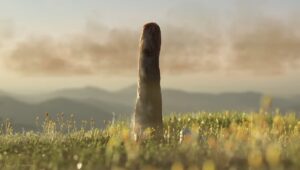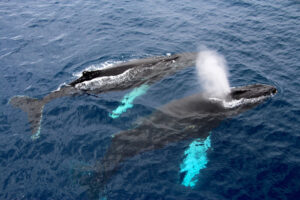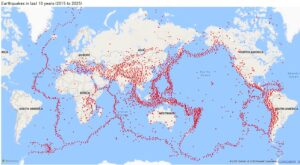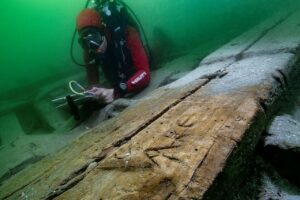Christian Bodegren headed back into the wild
4 years ago we left him off with an Explorersweb award; now he’s back. We caught up with Chistian Bodegren last week and without further ado, here goes.
Pythom: Last we met you had just finished an epic descent of the Amazon river, 280 days counter current and off season. It was a first but you said that more than records you looked for the clarity of mind that solitude in the wilderness brings out. 4 years on, what have you been up to and how cluttered is your brain right now? 🙂
Christian: Yes, the brain is probably pretty cluttered after four years. I have been working at various oil rigs, traveled, looked at things.
Coming home after my paddle in 2012, I was quite full of impressions and tired. Was almost sick of the Amazon and didn’t want to talk about it. I tried to keep the special bond with wilderness though, hiking forests in Sweden and Europe.
Maybe I fumbled in search for a normal life.
I started to feel increasingly empty, without a real goal. Slowly thoughts of a new long trip came up, unlike the Amazon with animals and across open landscapes this time.
Finally I got that familiar tickling feeling in my stomach telling me it was time to go.
Pythom: Have you changed? How?
Christian: I think I have become more thick-skinned when it comes to things that worried me before.
Pythom: What’s the expedition plan?
Christian: The plan is to walk with camels from Mongolia to the Caspian Sea.
Since the countries don’t adjoin I’ll use different camels in Mongolia and Kazakhstan. I learned the hard way during my 2009-2010 Sahara Expedition that taking animals across borders is too much of a problem.
The expedition goal is to experience this wilderness and its people. It will also be very interesting to see how life on the steppe changes from summer to winter.
Pythom: How will you find the camels?
Christian: I got a good contact in Bayan-Önjuul, 150 km south off Ulaanbaatar. I should be able to buy camels there at around $750 each, that’s the market meat price. I’ll have to evaluate how wild and fit they are for a long hike.
Will be interesting to see how walking with dromedaries is different from walking with Bactrian camels.
Pythom: Such as?
Christian: If two humps are better or worse when it comes to pack and ride the animal.
Pythom: Will the hike be hard on them? And do they really weep?
Christian: It always takes a while before you get into the rhythm of the camels and such. I think it will be toughest for them to carry gear in winter Kazakhstan.
As for the weeping, perhaps it has more to do with cleaning the eyes. I think there was a movie about it, I haven’t seen it but maybe it comes from there.
Pythom: They (Google) say a thirsty camel can drink up to 135 liters in one sitting – how will you find water?
Christian: Talking to nomads and look for settlements or rivers on the map. That’s how I did it when I traveled Sahara.
Pythom: Apparently there are over 160 words for ‘camel’ in the Arabic language – which is your favorite? 🙂 Any other interesting fact about camels?
Christian: One reason camels can go long periods without water is the shape of their red blood cells. They are oval and so will flow when they are dehydrated rather than clumping, as ours do. The camel is the only mammal to have oval red blood cells.
I have no real favorite word for camel, but I do talk to them. Usually I find myself asking quite often, “what are you doing?” The camels mostly pretend like nothing happened.
Pythom: Why did you choose this particular journey?
Christian: Mongolia and Kazakhstan are the only two countries left in the world where you can walk almost freely with Bactrian camels over large areas of land and where there is still a living nomad culture.
Pythom: You’ll be gone for a long time, how’s your family dealing with that?
Christian: My family has somehow got used to that I disappear once in a while. I get too unbearable if I’m home too long without a project to work on.
Finding a girlfriend who wants to live this kind of life has proven problematic though.
Pythom: How do you finance your expeditions?
Christian: I make money putting up scaffolding solutions on land and oil rigs. Financing your own adventures is total freedom, because you are not dependent on anyone.
Pythom: You survived some terrible infections on the Amazon, what’s the biggest danger on this trip?
Christian: The winter cold that far north. Can go down to minus 50 degrees Celsius if you are really unlucky. I will have lost a lot of body fat with all the walking and will freeze easily.
Pythom: What about politics/people en route?
Christian: They closed and opened borders from one day to the next in Sahara so I could have some of that, although I think these are more solid countries where I don’t have to check in every week compared to some Africa examples.
Pythom: Wild animals?
Christian: Hope to see some wolves and there is word of a few bears in the Gobi. The chance to see a Gobi bear is very small though.
Pythom: Your biggest worry right now?
Christian: My biggest fear is not finding good camels and not have time to walk with them to the western border before the visa expires.
Pythom: Will you ever return to the Amazon?
Christian: I’ve been getting many emails over the years with the question whether I will return to paddle the Amazon again.
It’s possible. If I do return, it will be by a long new route, one that I have already named “Bodegrens circle”. I would have to be in great shape though, both mentally and physically. It was quite hard on me last time and I’m not sure I want to expose myself to it again.
Although I do like the animal life and the nature in the jungle.
I would probably not go alone, the challenge is too big for one person. But the possibility exists, it all depends on what my life shapes up to in the future.
Right now the current adventure is my main focus. Also, it’s a big world out there with many different things to do and be inspired by.
Check out and follow Christian on his website.






